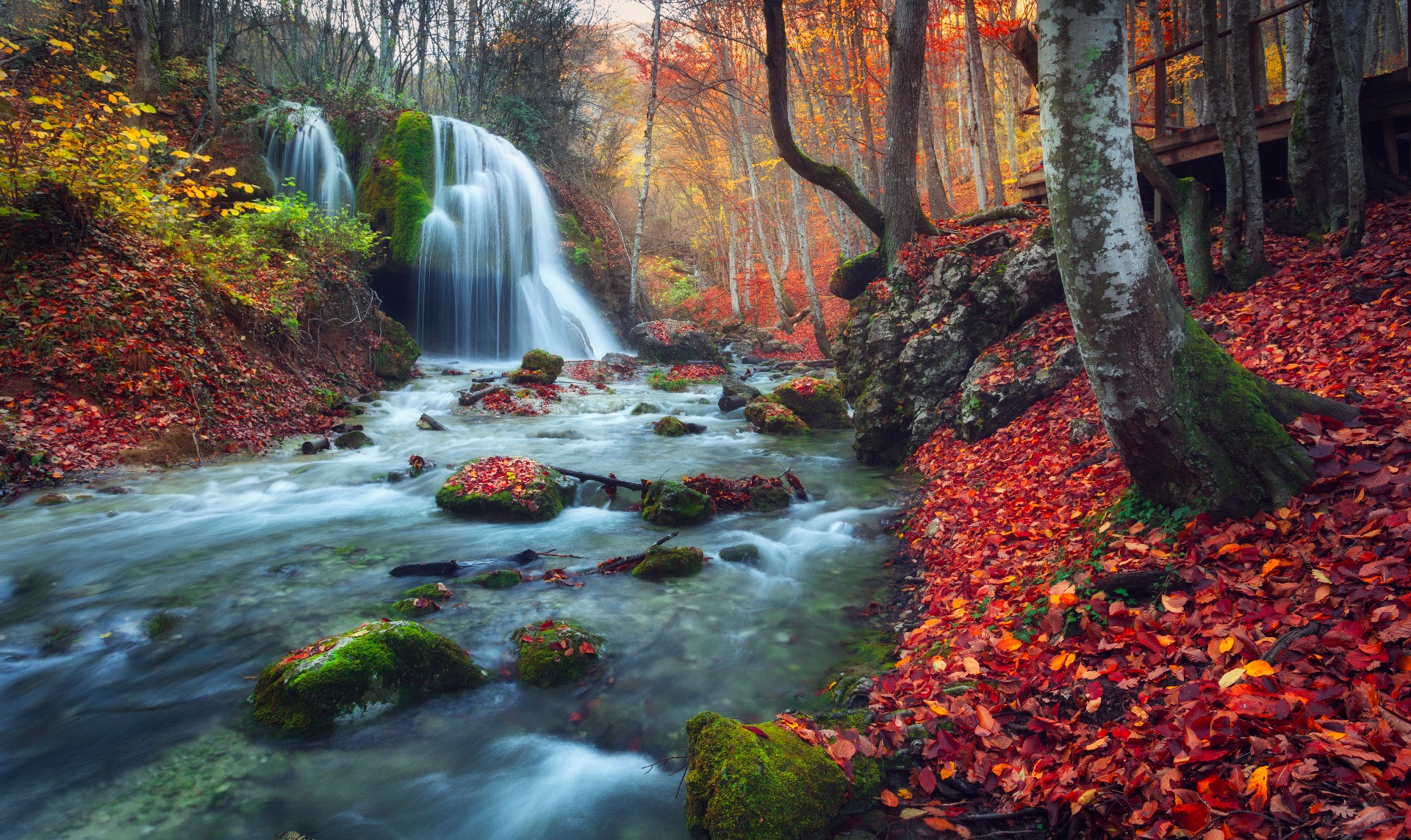
Vraja’s Sāyāhna Līlā Sūtra
Vraja’s Sāyāhna Līlā Sūtra
sāyāṁ rādhā sva-sakhyā nija-ramaṇa-kṛte preṣtāneka-bhojyāṁ
sakhyānīteśa-śeṣāśana-mudita-hṛdaṁ tāṁ
ca tāṁ ca vrajendum |
susnātaṁ ramya-veśaṁ gṛham anu jananī lālitaṁ prāpta-goṣṭhaṁ
nirvyūḍhosrāli-dohaṁ sva-gṛham
anu punar bhuktavantaṁ smarāmi
1 Rādhā sends some sakhīs to Nandālaya with the sweets for Kṛṣṇa's sāyāhna bhojan. And after Kṛṣṇa enjoys his meal, the sakhīs return to please Rādhā with Kṛṣṇa's mahā prasāda and the news of his activities.
Meanwhile Kṛṣṇa is bathed and dressed with enchanting attire. And afterwards his mother and the ladies of the house fondle him. Then Kṛṣṇa goes to milk the
cows and returns to enjoy evening bhojana with his family members. Let's thus remember Rādhā and Kṛṣṇa's sāyāhna līlās." (Śrī Rūpa Gosvamī's
Smaraṇa-maṅgala 8 )
Here it is a brief prelude from Kṛṣṇa-bhāvanāmṛta:
As Govinda returns from the forest, the svarga nārīs (ladies of heaven) watch
from their flying objects and begin conversing amongst themselves:
"Hey sakhī!" one damsel says, "Kṛṣṇa and the sun are both effulgent, and they're both the padminīs nitya bandhus (eternal friend of the lotus). So let's compare them: We see that the sun rises in the sky, whereas Kṛṣṇa remains on the ground. This reminds me of two objects placed on a scale; the light one rises and the heavy one goes down."
Another ramaṇī comments: "Hey sakhī! Such a comparison only shows the Creator's stupidity! Would a learned person compare gold with a stone? So what resemblance do we find between Kṛṣṇa and the sun?"
"You're right!" the other svarga damsel answers, "The sun only rises in the daytime, yet Kṛṣṇa always remains effulgent! The sun only aids our vision, yet Kṛṣṇa's darśana awards paramānanda! And although Sūrya promotes varṇāśrama dharma—Kṛṣṇa awards prema, even to the mobile and immobile entities!"
Another ramaṇī adds: "The sun's rays are scorching, whereas Kṛṣṇa's kānti (efulgence) is soothing and mild. The sun has thousands of go (rays), yet Kṛṣṇa has thousand of go (cows). The sun destroys the darkness outside, yet Kṛṣṇa destroys everyone's darkness (mode of ignorance) from within. The sun becomes covered by the clouds, Kṛṣṇa's complexion defeats the clouds beauty."
The other svarga damsel goes on: "Although the sunrise unites the timid cakravākas and makes them happy, the sunset brings their repeated distress. But Kṛṣṇa's lotus hands always please the timid Vraja sundaris' cakravākas-breasts! The sun increases the earth's fortune, but only before sunset. Yet Kṛṣṇa renders the earth a mahā tirtha by the constant touch of his caraṇa kamala!"
Another svarga sundari says, "Look! Both Kṛṣṇa and sun fulfill the gavādhīśvara's desires at dusk. Sūrya sets in the west to please the varuṇa, and Kṛṣṇa heads to please the yugala gavādhīśvara (Nanda Yashoda). But unfortunately for us, when Kṛṣṇa enters his home we will miss seeing him!"
Thus, as the heavenly devīs discuss Kṛṣṇa's qualities, their sweet voices pour amṛta into the ears. The word gavādhīśvara āśā anugāmī mean 'Kṛṣṇa heading west'. Yet the varuṇa dikpāla nāgarī (the sundarī ramaṇī of the western sky), due to moha (illusion), mistakenly believes that Kṛṣṇa is coming to see her! Thus she turns red with Kṛṣṇa anuraga (the sky displays a beautiful sunset).
When nearing home, Kṛṣṇa passes along the narrow alley-ways. So from their balconies, the Vraja sundarīs begin showering him with flower petals moistened with their tears (the puṣpāñjali of their wet lotus eyes)! And feeling their touch, Kanai looks up, but then the svarga sundarīs surmise: "Oh! Kanai is looking at us!" Thus their bodies erupt with goosebumps as they praise their fortune! But this shouldn't be taken as a fault on their part, because for beautiful-eyed mugdha nāyikās (inexperienced heroines) even fanciful thinking can award extreme ānanda.
Thus Mukunda enters his father's house to merge into the amṛta jalanidhi (nectar-ocean) of his parent's vātsalya affection. Yet meanwhile, the sun plunges into the salty ocean to attain Kṛṣṇa in another birth (after the next sunrise). In other words, just as yogīs perform severe tapasyā by throwing themselves into the ocean to attain their desired siddhi—the sun sacrifices its own body, hoping to regain Kṛṣṇa's saṅgāmṛta! Hence the sun's Kṛṣṇānurāga is praiseworthy.
